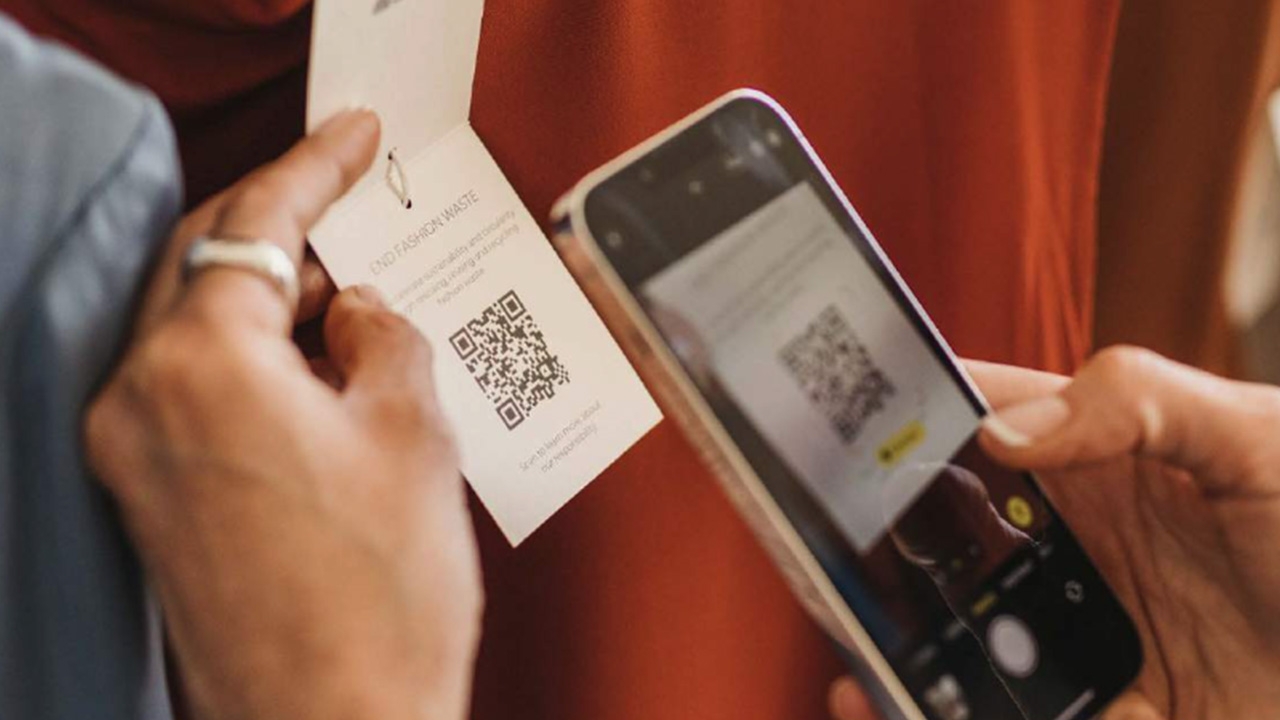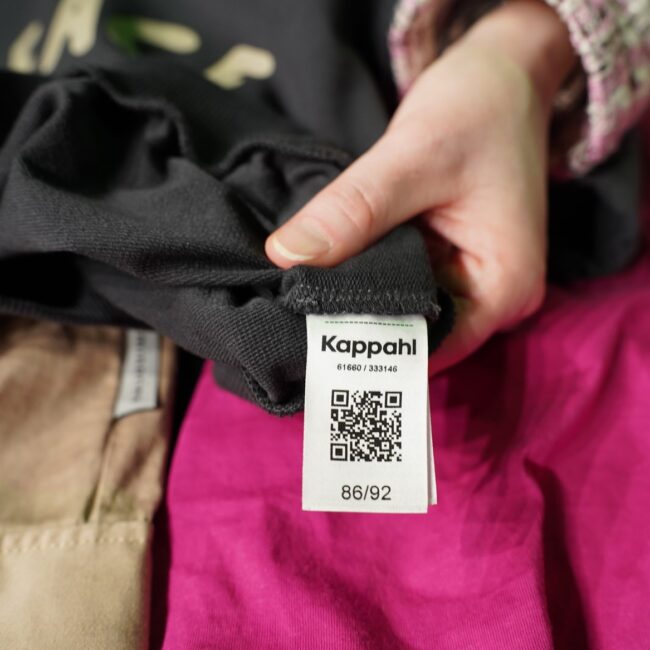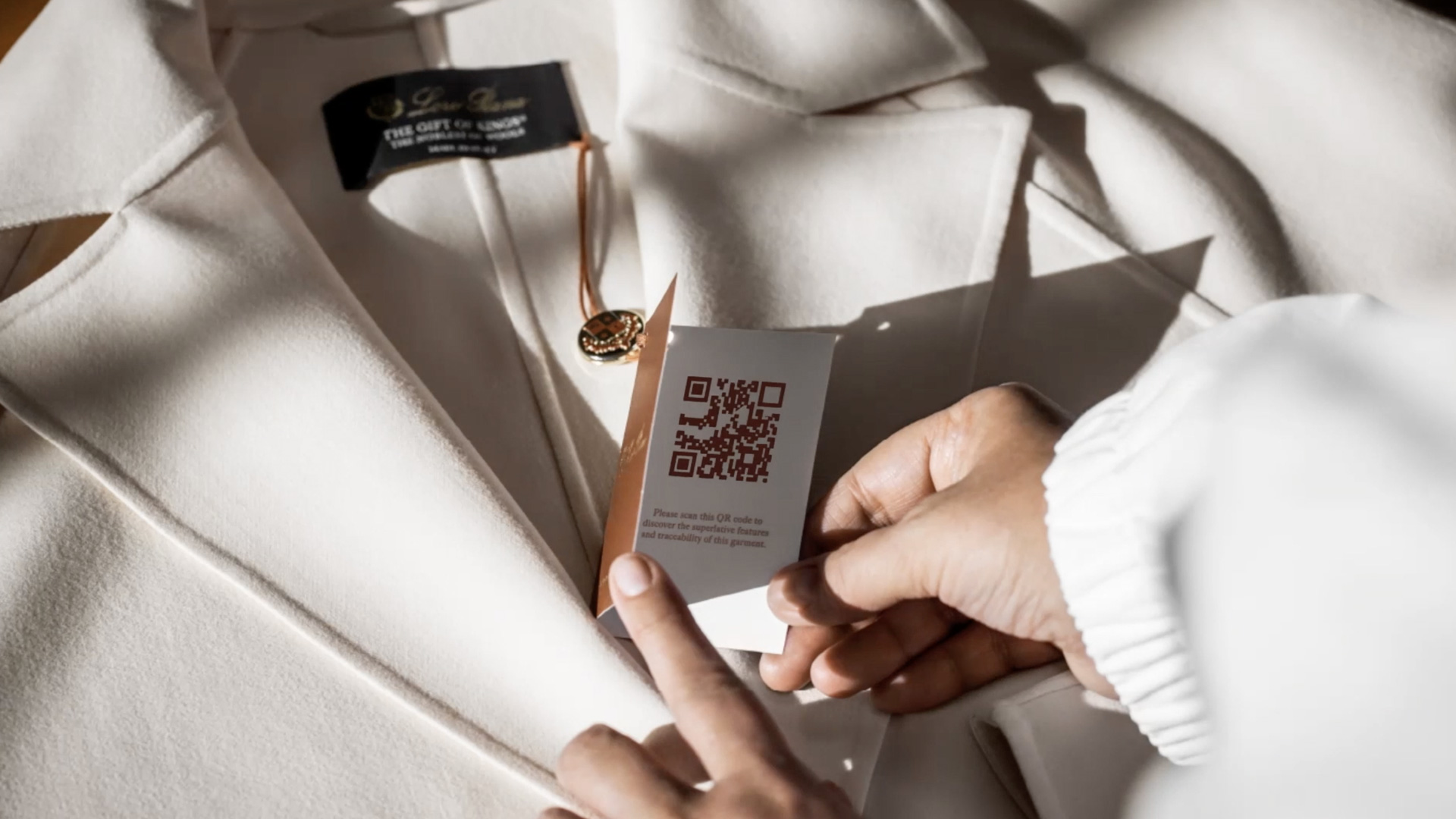Threads of change
A recent report highlighted the environmental crisis facing the textile industry, and RFID technology holds promise for revolutionizing this sector.

Research confirms that consumers want more transparency about the clothes they buy
The textile industry faces several challenges with governments drafting new legislation and consumers are demanding more transparency. The good news is that new technology and insights have provided innovative ways of not just solving these problems but thriving in the face of them.
Market pressures
The 2024 Threads of Change report by Avery Dennison revealed that USD 163 billion worth of textile inventory is thrown away each year due to expiry or overproduction. Avery Dennison says it is more than the GDPs of Croatia, Costa Rica and Iceland combined.
The magnitude of this waste demands urgent action. However, although companies recognize this issue, they are not allocating sufficient investment to modern technologies. In fact, three-quarters of businesses are investing only 5 percent or less of their technology budget in supply chain sustainability.
Conversely, consumers are advocating for improvement. They seek quality in their purchases while also desiring a clear conscience. An inspiring 86 percent of people worldwide express a desire for a more ethical and sustainable world, as per the World Economic Forum report.
In addition to changing consumer attitudes, governments are advocating for higher standards within their economies.
The European Commission, for instance, is advancing Digital Product Passport (DPP) legislation under the Ecodesign for Sustainable Products Regulation (ESPR).
The DPP is an initiative that’s part of the EU’s Circular Economy Action Plan (CEAP), aiming to provide a digital identity to products in various economic sectors. It’s officially defined as ‘an environmental policy instrument that aims to improve product circularity by exploiting the power of digital to collect, organize and store information in a secure way’.
“DPP sets the next important step in circularity. By being the first in the industry to begin compliance we want to lead by example to inspire the markets, our industry partners and the bedding sector overall”
The DPP is expected to include details regarding the item’s origin, material composition, environmental impact, and other relevant information. Initially, product categories such as apparel, textiles, and batteries are the primary focus, with the scope anticipated to broaden in the years ahead.
The DPP is anticipated to have a significant impact on fostering sustainability and transparency within global supply chains. It will be applicable to any business introducing a product to the EU internal market. While the specifics of its rollout are currently under discussion, its effects are already evident in certain global sectors as supply chain participants begin their preparations.
Fashion retailers trial DDP
The Trace 4 Value initiative, funded by the Swedish Governmental Agency for Innovation Systems (Vinnova), encompasses five sub-projects focusing on traceability, one of which delves into the textile sector.
Leading brands Kappahl and Marimekko have outfitted over 3,000 pilot products with ID carriers containing vital supply chain and transparency information. These ID carriers, along with QR codes, were affixed to the garments during the production phase.

Scanning the QR code with a mobile device grants consumers and stakeholders immediate access to comprehensive product details. Trace 4 Value DPP follows global interoperability standards and utilizes decentralized data storage across two platforms.
In addition to the pilot project, Kappahl has also adopted a traceability technology, enabling suppliers to digitally trace all its garments. Such a traceability tool is essential for brands looking to implement a scalable DPP system with accurate traceability data.
‘Kappahl wants to be a pioneer when it comes to sustainability and transparency in fashion and is part of a pilot project on the development of digital product passports in textiles initiated by Trace4Value,’ says Sandra Roos, vice president of sustainability at Kappahl. ‘We can now show our customers the first version of the digital product passport in textiles, all the way from production to sales.’
‘The introduction of digital product passports means a major change for the industry. We will not solve it on our own but must work together and learn together. The Trace4Value project is extremely valuable to us as a fashion company and we are now very curious about how the passports will be received by customers and what knowledge the pilot will give us,’ adds Roos.
In March, the findings were showcased at DCongress in Göteborg, organized by Swedish Commerce. Roos provided attendees with a glimpse into how a digital product passport functions for consumers, demonstrating by scanning a QR code on a garment.
“We are giving our members exciting and exceptional new technological opportunities in the field of traceability to protect and grow their brands globally”
‘This set-up provides possibilities to share and add unique product information into the DPP throughout the product life. So, the QR code is scanned, the unique ID through a GS1 digital link sends a request to a resolver, which identifies in what data source the data associated to that specific product resides. The data is validated then fetched from the different data sources and then shown up your screen. The data can be stored in different places, in a decentralized data storage, in this pilot it is stored in two different platforms.’
Roos emphasized that the DPP is beneficial not only for customers, but also for companies: ‘Kappahl and other brands can benefit because the DPP will provide relevant information to the consumers in a standardized way. The information will be validated, and we will have a lot more information about the sustainability claims we make, to see if they are true or false.’
‘It will be easier to distinguish between good and bad products. It will also be easier for authorities to do this legal supervision to see if the claims are correct. This is important if we want to reach this transition to a sustainable society,’ adds Roos.
Luxury elevates DPP with blockchain
Nearly three years ago, several luxury brands, including Prada, Louis Vuitton, Loro Piana, Fendi, Celine, and Christian Dior, joined forces to establish the Aura Blockchain Consortium. Despite being competitors in the market, they came together to tackle common challenges related to authenticity, responsible sourcing, and sustainability through a secure digital format.
In December last year, the consortium added DPP platform crafted by Aura Blockchain Consortium, tailored to provide brands with a holistic regulatory framework, elevate product narratives, and engage customers through innovative functionalities. This bespoke platform is carefully curated to address the distinct requirements of brands, offering customizable features that enable them to create a tailored digital journey for their audience.

In January this year the consortium has partnered with Mojix, an item-level supply chain intelligence specialist. Connecting its cloud-based platform to the Aura Blockchain enables certified traceability via immutable item identification, as well as instant and accurate track-and-trace, back to any original material composing an individual article. Thanks to NFC and RFID technology and serialization, Mojix delivers standardized unique identities to luxury items and track them from source to sale.
The benefits include facilitating brand protection, enhancing quality and provider control and improving customer loyalty through unique, item-specific, and undisputed information on provenance and conditions of manufacture and transportation.
DPP-proof mattress
Aquinos Group, one of Europe’s leading mattress manufacturers, has proactively responded to market pressures, leveraging its foresight to set itself apart in a crowded and fiercely competitive market.
Since the beginning of this year, the company initiated a practice of tagging its products with digital ID technology, facilitated by Avery Dennison’s atma.io connected product cloud. This implementation offers stakeholders within the circularity chain unprecedented access to information regarding the product’s origins and materials. This process generates a ‘digital twin’ on the atma.io platform, providing precise details about the product.
‘We are proud to be working on this project with Aquinos and TripleR,’ says Michael Goller, senior director for atma.io at Avery Dennison. ‘Mattresses are complex and bulky products that require a highly sophisticated sorting and dismantling process. To date, it has proven difficult to do this in a cost-efficient manner - leading to millions of mattresses going to landfill each year. This is precisely why DPPs have been established and we are excited to push boundaries with our partners towards greater traceability, efficiency and circularity.’
Down the line, the RFID tags affixed to Aquinos products will undergo scanning at recycling centers. This process enables product dismantlers to swiftly discern the materials utilized in manufacturing, facilitating a more efficient and effective separation for potential reuse.
Additionally, consumers will have the option to scan a QR code using their smartphone, granting them access to comprehensive product information both before and after purchase, empowering them to make well-informed decisions.
Once the DPP scheme for mattresses is enforced, Aquinos will have already tagged one million items, positioning itself as the inaugural producer to adhere to the DPP scheme on a pan-EU scale.
Unlock the power of RFID technology: dive deep at Labelexpo Americas 2024
As part of the educational program at Labelexpo Americas 2024, scheduled for September in Rosemont, Illinois, organizers have arranged a five-hour workshop featuring prominent RFID and smart labeling experts. This workshop, presented by the Label Academy, a global training initiative for the label and package printing industry, aims to equip participants with the technical know-how and expert insights necessary for converters seeking success in the rapidly evolving realm of RFID and smart labeling.
Attendees can expect to delve into a broad spectrum of topics, beginning with an overview of RFID technology and the converter’s role within this ecosystem. The session will also explore the materials and equipment essential for engaging with interactive technologies, delve into testing procedures, address cybersecurity concerns, and conclude with practical case studies and a discussion on sustainability within this segment.
The workshop, scheduled to coincide with Labelexpo Americas 2024, kicks off on the first day of the exhibition, September 10, at 9:15 a.m. More information is available at www.labelexpo-americas.com.
Stay up to date
Subscribe to the free Label News newsletter and receive the latest content every week. We'll never share your email address.


